‘However you’re feeling, you’re not alone’
Across Emory, students are reaching out to help themselves and others — from self-care and peer support to university mental health resources

Transitioning to college can be difficult under the best of circumstances, and COVID-19 only exacerbated that reality. That was Muskaan Vohra’s experience when she moved from Knoxville, Tennessee, to Emory’s Oxford College as a first-year student for the fall 2020 semester.
Although she was grateful to be on campus and understood the reasons behind protocols that kept students physically distanced, the situation was far from ideal — and Vohra began to see the toll on herself and others.
“There was lots of isolation,” says the anthropology and human biology major. “I had a pretty tough time meeting new people. I began to notice trends, like people getting their food and taking it back to their rooms without having any conversations.”
By the end of fall semester, Vohra was questioning whether Emory was the place for her. When she returned to campus in January, she knew things needed to change.
That change began through a conversation with Joe Moon, dean of campus life at Oxford. “Muskaan’s offer to establish some peer-to-peer connections came at a crucial time when we were all struggling to support students in distress,” Moon says. “We were all swimming in unfamiliar waters and her concern and ideas were well-timed and well-received.”
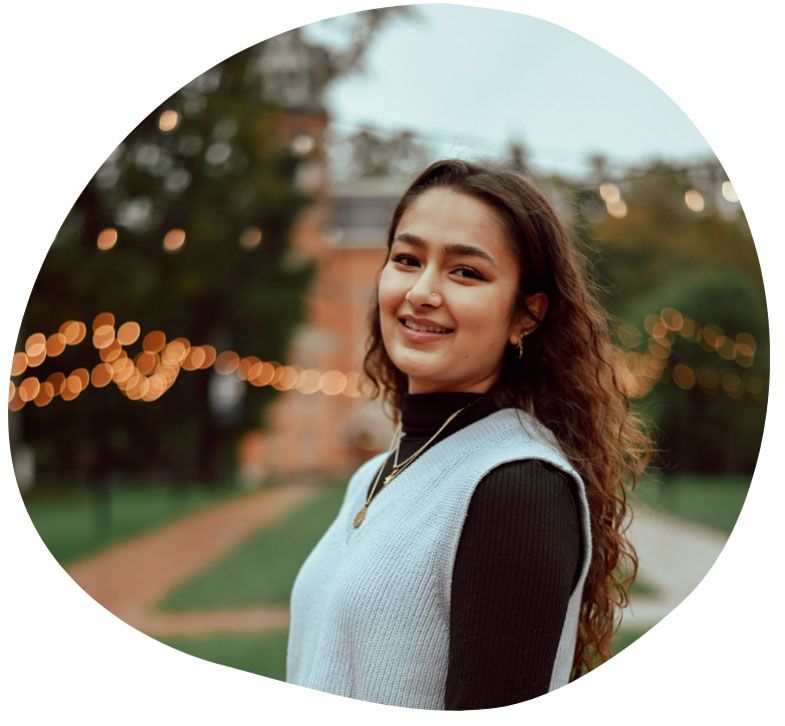
“I’ve always known that physical well-being is important, but the parallel of mental well-being is just as important.” — Muskaan Vohra
“I’ve always known that physical well-being is important, but the parallel of mental well-being is just as important.” — Muskaan Vohra
Their brainstorming led to a cohort of Oxford students interested in health and wellness creating an online form that students could use to reach out when they felt lonely or needed support.
The cohort — working through the Student Government Association’s (SGA) health and wellness committee — received a far larger response than expected.
“We didn’t really advertise it,” Vohra says. “We posted a few flyers and the word got out.” Whether students wanted to talk, go on a walk or simply enjoy some socially-distanced downtime, they found understanding friends in the cohort.
Connecting in these casual but intentional ways provided the boost Vohra needed to shift to a better mindset and proved just as valuable to other students.
“Sometimes we forget that even in college, others are in the same position as us,” she says. “I’ve always known that physical well-being is important, but the parallel of mental well-being is just as important. It can be hard to come out of that place, but we don’t really have a choice if we want to feel better. Even taking a small step toward coming out on the other side can make a difference.”

Building campus collaborations
These types of student-suggested initiatives work in tandem with Emory’s ongoing efforts to support student well-being.
Emory’s Counseling and Psychological Services (CAPS) department, Campus Life and other university divisions have long been open to student input and have put suggestions into practice when possible, such as adding new therapists or expanding programs in response to increased student demand for mental health services. Dealing with changes brought on by the pandemic led to other adjustments, including the addition of virtual health services 24/7 through TimelyCare, but there’s more to do.
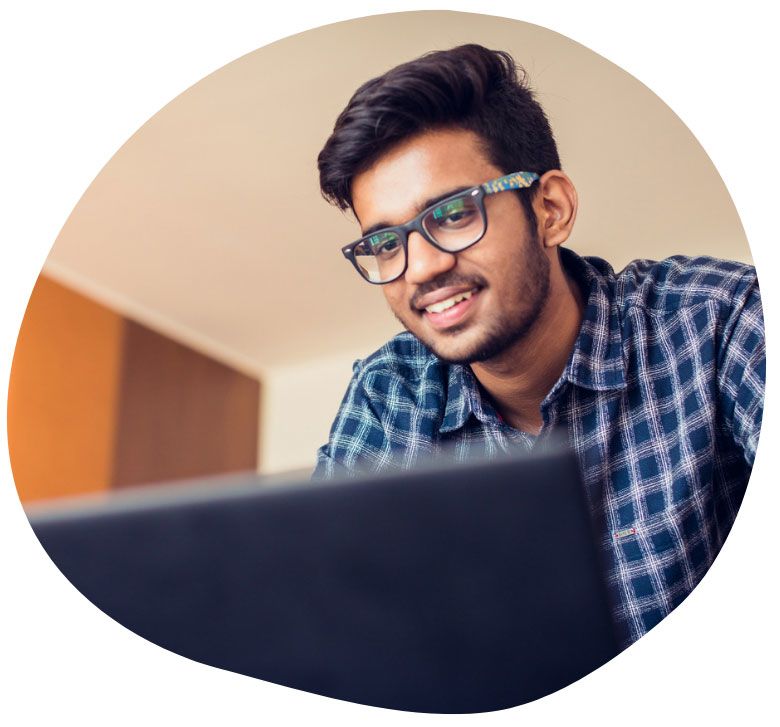
TimelyCare provides a variety of no-cost telehealth services that are available 24 hours per day, 7 days per week.
TimelyCare provides a variety of no-cost telehealth services that are available 24 hours per day, 7 days per week.
“While adding more licensed providers is certainly helpful, our goal cannot simply be to increase the number of scheduled counseling appointments,” says Gary D. Glass, director of Counseling and Career Services (CCS) at Oxford College. “We must also aim to create a more therapeutic campus, which requires collaboration with student leaders who can have an impact on addressing some of the campus and societal norms that contribute to the stress and distress that many students face.”
Wanting to make that kind of impact led Eddy Cabrera to apply for a representative position with Black Mental Health Ambassadors (BMHA) when he was a first-year student in Emory College of Arts and Sciences. He’s very open about his own struggles with depression, anxiety and body dysmorphia and knew he would join a mental health organization when he reached Emory.
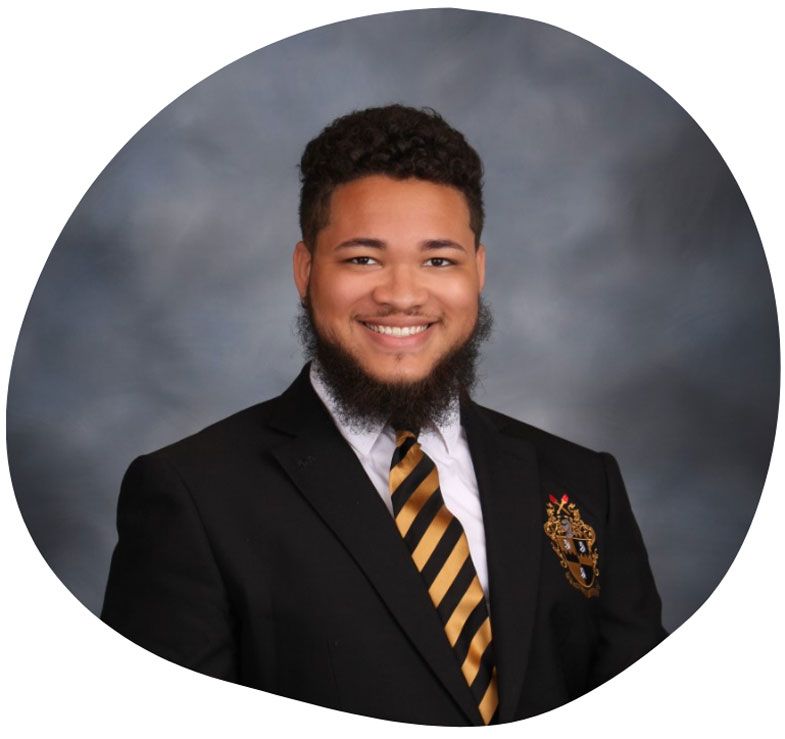
“I am a forever advocate for mental health, wellness and counseling as a normal part of everyone’s life.” — Eddy Cabrera
“I am a forever advocate for mental health, wellness and counseling as a normal part of everyone’s life.” — Eddy Cabrera
“As a Black and Latinx man, many times in my life I was not given access to proper mental health care, and was asked about my mental health and well-being even fewer times,” says the New York native, now a senior majoring in African American studies and minoring in sociology. “Being able to find counseling that matched my needs and identity helped me realize I wanted to help people in the ways that saved my life. I am a forever advocate for mental health, wellness and counseling as a normal part of everyone’s life.”

Support through peer connections
Sometimes students feel so stressed and stretched that they don’t realize their peers feel the same way. That was the case for Hailey Hazard, an MPH student studying behavioral, social and health education sciences at Rollins School of Public Health.
Hazard, who serves on the executive board of the Student Outbreak Response Team (SORT), says the need to balance academic demands, work expectations, student organization involvement and relationships is a big source of stress in her life. When she finally shared her feelings about being overwhelmed with friends and fellow students, she learned most of her peers felt the same way.
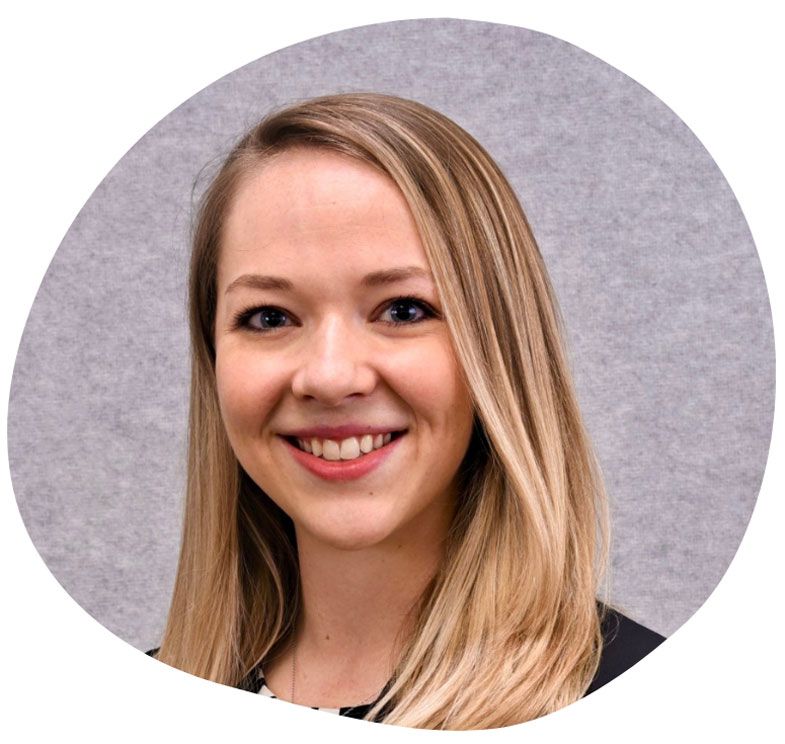
“Leaning on others … has really aided me in being in a place of better mental well-being.” — Hailey Hazard
“Leaning on others … has really aided me in being in a place of better mental well-being.” — Hailey Hazard
“Knowing I wasn’t alone and being able to vent and talk about shared experiences with other students was immensely helpful,” Hazard says. “Leaning on others and collectively discussing how to deal with the demands of grad school has really aided me in being in a place of better mental well-being.”
Peer-to-peer support such as Hazard found also is available through numerous organizations on campus. In addition to Black Mental Health Ambassadors, Emory Active Minds is another mental health advocacy group with students who are always ready for conversations. For those who like to tap into creativity as a release, Emory Dark Arts provides a platform for student artists of all backgrounds and skill levels to communicate about mental health.
“Each of CAPS’ student groups — Emory Helpline, Active Minds and Black Mental Health Ambassadors — have pivoted from early in the pandemic to now to provide accessible peer-to-peer support for Emory students,” says Jane Yang, interim co-executive director for CAPS. “Each group’s efforts have been tailored to meet the needs that student leaders have been hearing in their respective communities. The investment of these student leaders has been heartening and remarkable.”
All of these groups are no-judgment zones, but sometimes students want even more privacy as they talk with their peers about concerns. The Emory Helpline — which has been in existence for 42 years — fills that gap.
“We provide confidential peer support to anyone in the university community,” says Olivia Schneider, a senior in Emory College majoring in psychology and minoring in Jewish studies. She serves this year as the Helpline’s outreach chair — the only student associated with the Helpline who is not anonymous. “We’re a student-run organization and not a substitute for counseling, but can certainly help people who need a listening ear.”
CAPS oversees the Helpline and ensures that students who are accepted to participate are thoroughly vetted and trained. Callers and Helpline volunteers remain anonymous; callers are assured of privacy because conversations are not recorded.
“I think it takes a lot of bravery to call the Helpline regardless of the reason for the call,” one volunteer says.
“There is a lot to gain from verbalizing and talking through the issues that are bringing stress into your life. Although people with the Helpline remain anonymous, they have a pretty significant influence across campus.”

The Emory Helpline is available for students seeking anonymous peer support.
The Emory Helpline is available for students seeking anonymous peer support.
“I became a Helpline volunteer because mental health was an important issue that I had personally grappled with,” says another student. “Because we’re also students, many of the issues that callers want to talk through are ones that we as volunteers are familiar with.”
Students staff the Helpline every evening from 9 p.m. until midnight during the regular academic year (the line is closed for student break times and major holidays). Their number is 404-727-HELP (4357).
“However you’re feeling, whatever you’re going through, you’re not alone in that experience,” Hazard says. “Someone else has felt the same way or been through the same thing. Whether it’s other students or someone at CAPS, there is always someone willing to talk about things and offer support.”

Making time for self-care
“Self-care” might seem like a buzz word, but it’s a concept that emphasizes the importance of learning to balance physical and mental health — and how to cope when that balance shifts, especially in a high-performance environment such as college.
“To me, mental well-being is shown in how a person addresses and adjusts to the challenges and stressors that arise over time,” says another Helpline volunteer. “I strive to have mental well-being by engaging in activities that promote my self-care, like going on a walk and talking with friends.”
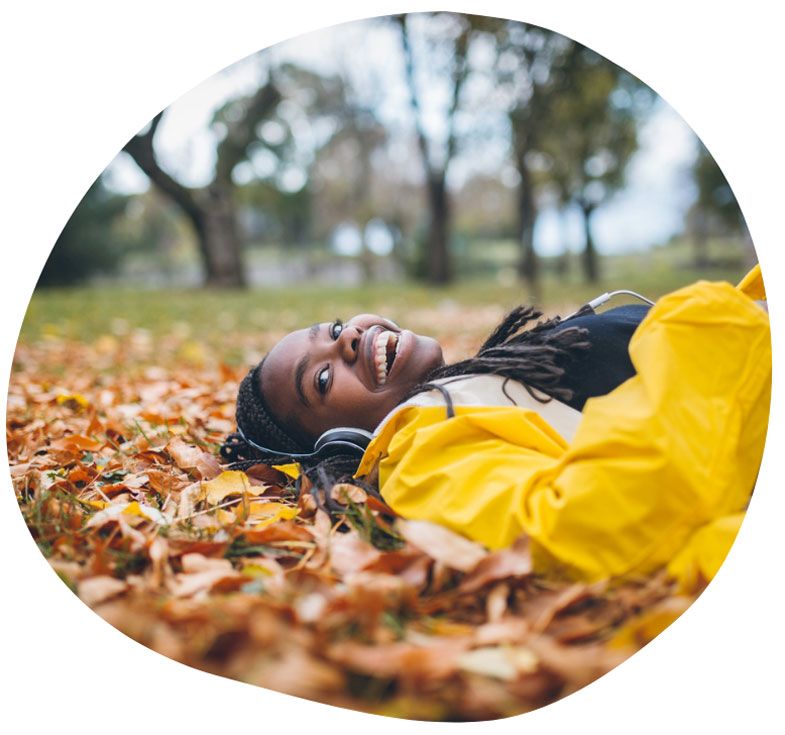
Self-care can be as simple as taking a break to get outside, or making time to do something else you enjoy.
Self-care can be as simple as taking a break to get outside, or making time to do something else you enjoy.
Cabrera tries to stay in a mentally well frame of mind through two of his passions: music and helping others. In addition to his work with BMHA, he sings with AHANA A Cappella (an R&B a cappella group) and enjoys Wonderful Wednesday activities.
Hazard enjoys participating in Dooley After Dark activities as a way to intentionally relax. Being proactive in protecting her emotional health when she’s approaching a stressful time is another tactic she’s learned — and a lesson all students can benefit from.
“Students often know the importance of self-care but can find it difficult to maintain and follow through with it, especially during busy times of the semester,” Yang says. “But it’s particularly during stressful times that we need to be more attentive to self-care in order to preserve and promote our well-being. Self-care may look slightly different during busy times, but it’s important to not relinquish it entirely.”

Strengthening communication
New or strengthened programs are important, but students can only use services when they know what’s available.
Improving those communication channels between students and the university has been one focus for senior Sabrina Jin during her time at Emory. She got involved with Student Government Association during her first year at Oxford because she saw it as an opportunity to give back to the college. Now that she’s finally on the Atlanta campus — after taking remote classes at home in California to complete her sophomore and junior years because of the pandemic — she wants to make a difference.
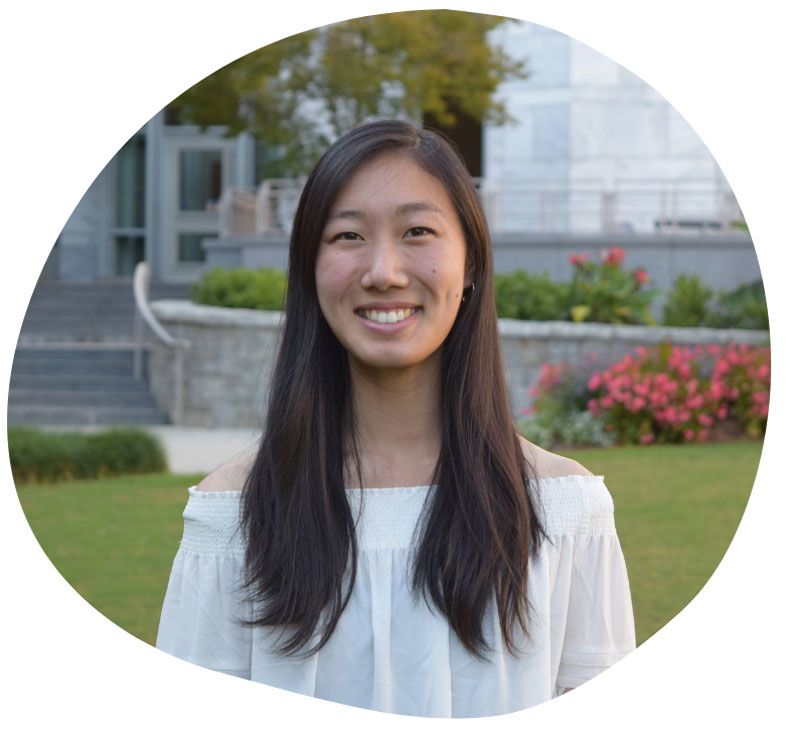
“We need to recognize the truth that people need people and that we’re not burdening someone by wanting to talk.” — Sabrina Jin
“We need to recognize the truth that people need people and that we’re not burdening someone by wanting to talk.” — Sabrina Jin
“I looked at what I could bring from Oxford to Emory,” she says. She didn’t find anything at Emory College similar to the Oxford SGA’s health and wellness committee, so helped form one under the auspices of College Council.
As the group goes through its first-year trial period, Jin has intentionally connected students with resources on campus. She is especially grateful for the ways they’ve been able to work with Sharon Rabinovitz, executive director of Student Health Services.
“Communication with the student body is so important,” Jin says. “Dr. Rabinovitz has been very open to working with us and streamlining communication. She has listened to our concerns and I feel like things have gotten better.”
Rabinovitz also is glad for the connection and agrees on its importance.
“Developing and optimizing two-way communications between Student Health Services and Emory students via SGA is more important now than ever,” she says. “As part of Emory, SHS already supports an integrated model of health and well-being. As we move into an era where the threads of health and wellness are woven into our university culture, it is essential to receive input from students to ensure we are meeting their needs in a way that is accessible and meaningful.
“I deeply appreciate that Sabrina reached out to make this partnership stronger through creation of this newly formed committee,” Rabinovitz adds.
But Jin and others want more than improved communications with Student Health Services. They want their fellow students to realize how interrelated physical and mental health are — and how important it is to address both.
“When you’re struggling, the important thing is to find meaning in something and know you’re not alone,” Jin says. “We need to recognize the truth that people need people and that we’re not burdening someone by wanting to talk.”
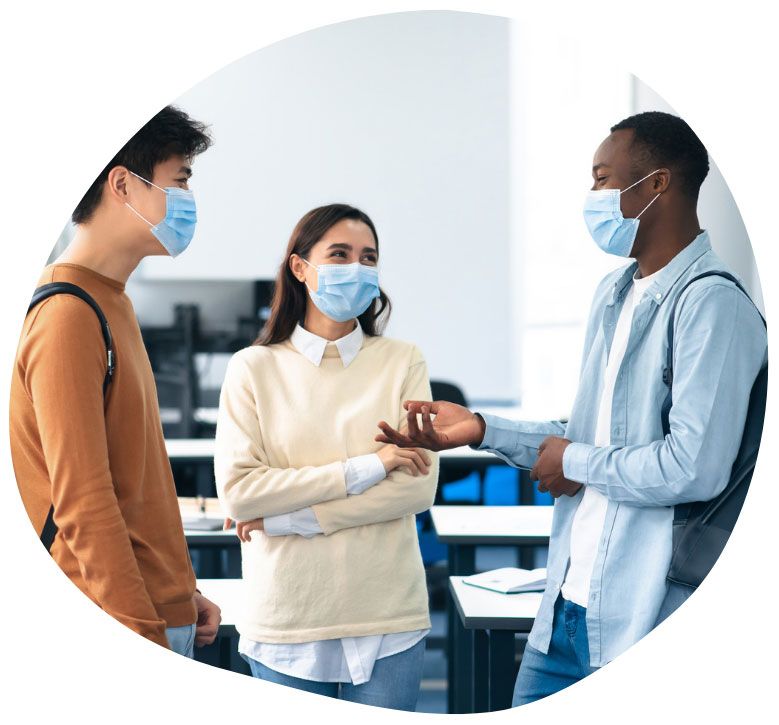
Talking about how you feel can be an important step toward mental well-being, whether with friends or through more structured support.
Talking about how you feel can be an important step toward mental well-being, whether with friends or through more structured support.
The student health and wellness committee wants to spread that message by finding ways to start conversations and give students a space to talk about issues and learn from guest speakers.
“Having a strong community to talk to when you’re trying to process sadness or other emotions can make a big difference,” says Jin, who sought support from friends when her father was diagnosed with congenital heart failure. “Long-term personal sadness because of circumstances can be such a burden. More than anything, we want to create a sense of community. We want to go against the stigma of asking for help.”
Schneider shares that goal; personal experience has taught her how vital seeking help can be.
“Oftentimes it can be really scary to ask for help,” she says. “Being able to provide a safe space for students and being part of helping support their mental health is important for all of us.”
Mental health resources
Emory’s Atlanta and Oxford campuses offer a range of programs to support student well-being and teach coping and resilience skills. Learn more about mental health resources.
- Counseling and Psychological Services (CAPS) on the Atlanta campus offers individual and group therapy sessions, drop-in workshops, “Let’s Talk” drop-in virtual consultations, skills groups, suicide prevention bystander training and support and therapy groups.
- Student Health Services offers free psychiatric services for all enrolled Emory students, including diagnostic psychiatric evaluations, medication evaluations and long-term management of psychiatric medications. Referrals or recommendations are also available for students who wish to seek services off-campus.
- Counseling and Career Services (CCS) on the Oxford campus currently provides programs through online platforms: individual counseling and consultations, telehealth psychiatry services and referrals to local or Atlanta area providers for students needing more specialized or extensive services. An Emory login is required to access the page.
- TimelyCare is a telehealth service that expands medical and mental health support options—even for those who reside outside of Georgia. Mental health options from TimelyCare include 24/7 Talk Now mental health consultations, scheduled counseling and psychiatric sessions, and wellness-focused group sessions.
CAPS and CCS also offer support to student organizations that contribute to stronger mental health and well-being on campus. These are a few examples of student-run programs at Emory that offer peer-to-peer support. Search The Hub for more organizations or events.
- The Emory chapter of Active Minds seeks to educate students about mental health, discourage the stigmas associated with mental illness and encourage students to use available resources and seek help when necessary. Active Minds hosts speakers and discussions and collaborates with other organizations to increase awareness on campus.
- Black Mental Health Ambassadors (BMHA) was created in partnership with CAPS in response to the formal demands of the Black students at Emory in 2015. BMHA seeks to advocate for Black undergraduate and graduate students in relation to mental health.
- For students seeking a creative outlet, Emory Dark Arts provides an artistic platform for meaningful, honest communication about mental health. Dark Arts seeks to promote initiatives that de-stigmatize mental illness and generate impactful change on campus and beyond. Anyone is welcome to join, regardless of their background in the arts or mental health.
- Students who need a listening ear can call the Emory Helpline for a confidential, anonymous conversation with another student. Volunteers are available nightly from 9 p.m. until midnight during the regular academic year by calling 404-727-HELP (4357). The line is closed during student break times and major holidays.


